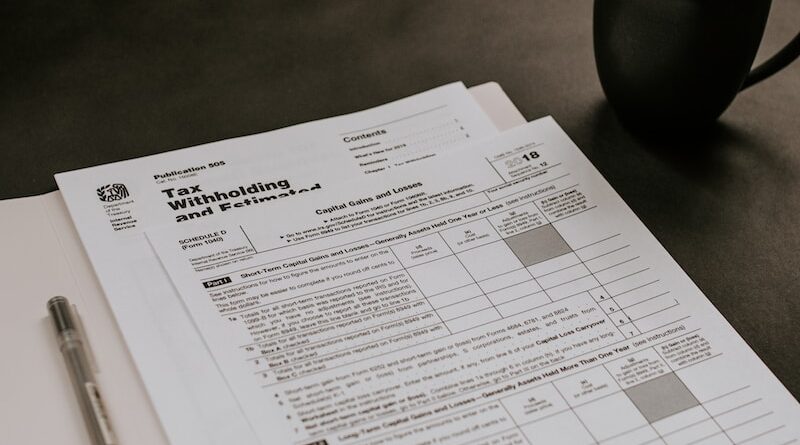A Comprehensive Tax Planning Checklist for Real Estate Investors
As you navigate the dynamic world of real estate investments, it’s crucial to maximize your returns while ensuring compliance with tax laws. That’s where this tax planning checklist comes in.
Designed specifically for real estate investors like you, this checklist is a powerful tool to optimize your tax strategy and protect your hard-earned assets. Whether you’re a seasoned investor or just beginning your journey, understanding the ins and outs of tax planning can make a substantial difference in your financial success.
Within this expert-curated checklist, you’ll find a series of actionable steps, practical tips, and valuable insights to streamline your tax planning process. From establishing a structured business entity to leveraging depreciation, cost segregation, and 1031 exchanges, we cover the essential strategies that can help you unlock the full potential of your real estate investments.
So, if you’re ready to take control of your taxes, maximize deductions, and minimize your taxable income, let’s dive into the comprehensive tax planning checklist for real estate investors. Prepare to elevate your tax strategy and pave the way for long-term prosperity in the competitive world of real estate.
Understanding Your Audience
Before we dive into the checklist, let’s identify who can benefit from this valuable resource. This checklist is ideal for:
- Individual real estate investors
- Partnerships and LLCs
- Real estate investment trusts (REITs)
- Property developers
The Tax Planning Checklist
Now let’s break down the tax planning process into manageable steps. By following these key steps, you can optimize your tax position and maximize your returns:
Step 1: Establish a Structured Business Entity
One of the first steps for real estate investors is to establish a structured business entity, such as an LLC or corporation. This provides liability protection and allows for flexibility in tax planning.
Step 2: Understand Tax Deductible Expenses
Real estate investors should have a thorough understanding of tax deductible expenses related to their investment properties. These may include:
- Repairs and Maintenance:
- Expenses for regular repairs and maintenance on your properties.
- Property Management Fees:
- Fees paid to property management companies for their services.
- Insurance Premiums:
- Premiums for property and liability insurance.
Step 3: Leverage Depreciation and Cost Segregation
Depreciation and cost segregation are powerful tax planning strategies for real estate investors. By accurately depreciating your properties over time and utilizing cost segregation studies, you can maximize your tax deductions and increase cash flow.
Step 4: Explore 1031 Exchanges
A 1031 exchange allows real estate investors to defer capital gains taxes when selling one investment property and reinvesting the proceeds into another property. Understanding the rules and requirements of a 1031 exchange can provide significant tax advantages.
Step 5: Keep Thorough Documentation
Maintaining organized and thorough documentation is crucial for tax planning and compliance. Keep records of rental income, expenses, receipts, contracts, and any other relevant documents. This will help you accurately report your income and deductions, as well as support any claims in case of an audit.
Step 6: Stay Informed About Tax Law Changes
Tax laws and regulations are subject to change, so it’s essential to stay informed about any updates that may impact your real estate investments. Consult with a tax professional or regularly follow reputable sources to ensure you are aware of any new rules or opportunities.
Benefits of Using the Checklist
By utilizing this comprehensive tax planning checklist, real estate investors can:
- Optimize tax deductions and minimize taxable income
- Ensure compliance with tax laws and regulations
- Maximize cash flow and returns on investment
- Reduce the risk of audits and penalties
- Make informed financial decisions based on a solid tax planning strategy
Efficiently Completing the Checklist
To make the most of this tax planning checklist, consider the following tips:
- Review the checklist in its entirety before getting started.
- Break down each step into manageable tasks and set deadlines for completion.
- Consult with a tax professional or advisor to ensure you understand the implications of each item.
- Keep a digital or physical folder to organize all relevant documents and records.
- Regularly update and revisit the checklist to reflect any changes in your real estate portfolio or tax laws.
Examples of Tax Planning Checklist Usage
Let’s consider a couple of scenarios to illustrate the practical application of this tax planning checklist:
Example 1: John, a Real Estate Investor
John is a real estate investor who owns several rental properties. He decides to use our tax planning checklist to optimize his tax position. By following the checklist, John:
- Establishes an LLC to protect his personal assets and take advantage of tax benefits.
- Identifies and tracks all tax deductible expenses, including property management fees and repairs.
- Engages a professional to conduct a cost segregation study, resulting in higher depreciation deductions.
- Explores the option of a 1031 exchange to defer capital gains taxes when selling one property and acquiring another.
- Maintains detailed documentation of rental income, expenses, and contracts.
- Stays updated on tax law changes and consults with a tax advisor annually.
Example 2: Sarah, a Property Developer
Sarah is a property developer involved in construction and sale of residential properties. She uses our tax planning checklist to ensure she maximizes tax advantages in her business. By following the checklist, Sarah:
- Establishes a structured business entity to separate personal and business liabilities.
- Understands tax deductions specific to property development, such as land acquisition costs and construction expenses.
- Works with a tax advisor to utilize depreciation strategies and cost segregation studies.
- Explores tax credits and incentives available for energy-efficient or affordable housing projects.
- Maintains meticulous records of project costs, sales, and related documents.
- Regularly attends industry conferences and stays updated on tax legislation affecting property developers.
Final Words
Effective tax planning is a critical aspect of real estate investment. By following this comprehensive tax planning checklist, you can optimize your tax position, maximize returns, and ensure compliance with relevant tax laws. Remember to adapt the checklist to your specific circumstances and consult with a tax professional for personalized advice. Take control of your tax planning today and unlock the full potential of your real estate investments.
Get Started on Your Tax Planning Journey
Now that you have a clear understanding of the essential steps involved in tax planning for real estate investors, it’s time to take action. Start by reviewing the checklist and identifying which items are most relevant to your situation. Create a timeline or set deadlines for completing each task to stay organized and focused.
Consider seeking guidance from a qualified tax professional or advisor who specializes in real estate investments. They can provide personalized advice, help you navigate complex tax regulations, and ensure you are making informed decisions.
Take the first step today and start implementing this tax planning checklist. Your future financial success as a real estate investor depends on it.

